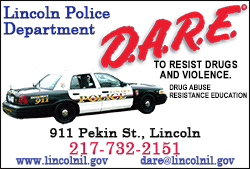|
Q&A: When retirement
experts sell a family-run business
 Send a link to a friend
Send a link to a friend
 [August 08, 2017]
By Beth Pinsker [August 08, 2017]
By Beth Pinsker
NEW YORK (Reuters) - A little information
can go a long way in the retirement business, which is something that
brothers Mike and Ryan Alfred were able to turn into a thriving
enterprise.
Founded in 2009, their company BrightScope was the first online rating
system for 401(k) plans, allowing employees to plug in the name of their
company - or a company they were thinking of joining - and find out how
a firm's investment options and fees stacked up against others.
Mike, now 36, and Ryan, 34, sold BrightScope last fall to New York-based
data company Strategic Insight for an undisclosed amount, but have
remained with the company in management roles.
Mike Alfred spoke to Reuters about how they decided it was time to make
a change.
Q: What was your first job?
A: I sold Cutco knives. I was very good at it and I made $14,000 in
seven weeks as a senior in high school. My mom wanted me to work selling
cinnamon buns at the mall.

I put it into an E*Trade account. Then as a freshman at Stanford, I
starting trading tech stocks. I turned it into $52,000 at the peak of
tech bubble. Then it ran all the way back down to about $20,000. I
thought I was really smart and then dumb, but really I was just learning
how bubbles work.
Q: How did you first learn about retirement and money management?
A: Our parents were really polar opposites, so Ryan and I saw both
sides. Our mom was very conservative. She paid all the bills early and
saved religiously for retirement.
My father was an entrepreneur, he was always swinging for the trees. We
had some successes, but he also made some mistakes.
Q: After running BrightScope for many years, how did you decide it was
time to sell?
A: We thought the market would be a lot bigger than it ended up being.
You have these visions in your head of how far you're going to take
something. We started to get more realistic.
We realized there wasn't enough growth ahead of us to justify running
the company with other people's capital. Also, you get a little tired
after seven years.
Luckily, we had already met most of the CEOs of the competitors. We were
able to initiate a process ourselves without hiring a banker.
[to top of second column] |

Undated photo of Mike Alfred. REUTERS/Handout/Courtesy of Mike
Alfred

Q: Did the sale generate a wealth event for you and your brother? And how did
you handle it?
A: We're very different than the average person who has a wealth event, because
we managed other people's money before we started BrightScope as registered
investment advisers.
We never had any temptation to spend money. I drive a Ford pickup truck. I have
everything I need. The primary thing I like to do is travel and eat. I had more
than enough money to do those things before the wealth event. So to me, it was
an opportunity to do more investing.
Q: BrightScope was always a family business - your parents were investors and
another brother worked for you. How will you keep that spirit going?
A: Ryan and I intend on working together. We stayed on with the parent company
and are executives. Our younger brother, Eddie (now 28), left in March and is
now working at a startup in the entertainment sector. That's a company that Ryan
and I are committed to investing in, but we can't work on it full-time.
Q: In the past, you and Ryan have given back by teaching financial literacy to
kids at your old high school. How do you plan to contribute in the future?
A: We want to get involved with charity – not just to give money, but also time.
I want to coach and help other entrepreneurs. I like to do practical things to
use the skill sets I've developed.
Q: What legacy do you hope to pass along to the next generation?

A: A culture of work. I think money by itself without the knowledge and culture
and ethic is worthless. It maybe even is harmful. Money by itself without an
understanding of what it takes to make it drives people to hurt themselves.
(Editing by Lauren Young and G Crosse)
[© 2017 Thomson Reuters. All rights
reserved.] Copyright 2017 Reuters. All rights reserved. This material may not be published,
broadcast, rewritten or redistributed. |